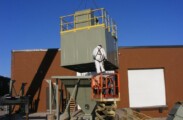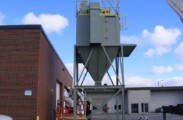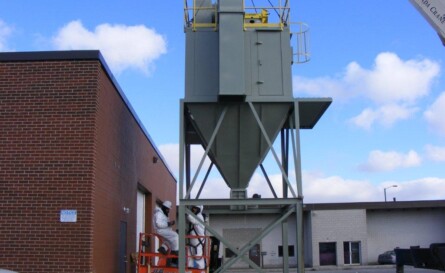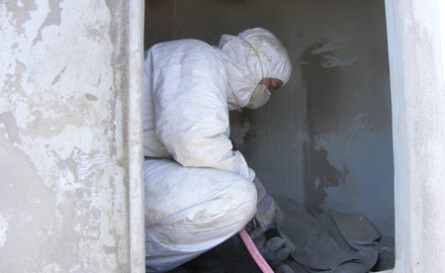SERVICES

Why Have Servicing For Your Dust Collection System?
Most systems are neglected: End user’s maintenance efforts are concentrated on the interior production equipment therefore, in most cases the preventative maintenance on the dust collection system is not performed.
Adding machinery affects performance: Growing companies will add machinery to their system and modify the machine layout that will affect the performance of the dust collection system.
Meet insurance requirements: To meet insurance underwriters and local code requirements, the spark detection and safety devices need to be inspected and tested on a routine basis.
Eliminate costly downtime: If the dust collection system has an unexpected issue, the resulting downtime will significantly affect your company’s profitability.
Minimize operating costs: The dust collection systems are one of the largest consumers of energy in a plant – Keeping a system operating efficiently will sustain and grow profitability.

Service Tasks Include…
Dust Collection Equipment Design: We will assist in design, fabrication and installation of new or used dust collection equipment and ductwork.
Visual Examination Clean Air Section: Inspection of dust collectors for dust leakage. Proactively detect issues before they become an environmental and maintenance issue.
Routine Maintenance As required: All moving parts are inspected for proper operation, minimizing the cost of maintenance, down time, and energy consumption, and ensuring that it meets insurance requirements.
Inspection and Testing of Safety Devices: To ensure equipment is working properly and reduces the risk of employee injury.
Documentation of Service Activities: Provides you with a service history of equipment and recommended action plan to optimize system performance and reduce operating costs.

Common Dust Collection System Problems
The following are some of the more common problems that can occur with industrial dust collection systems…we can correct them all.
- Baffle Integrity
- Bag, Controller, Diaphragm or Solenoid Failures
- Broken Cages
- Cell Plate Leaks
- Change in Capacity Requirements or Air/Dust Properties
- Collection Wall Corrosion
- Tube Sheet Leaks
- Timer Problems
- Improper Bag/Cartridge Installation
- High Emissions
- High Bag Usage
- Faulty Airlock, Blower, Screw Conveyor, Gauges
- Incorrect Controller Settings
- and more…
… that a ‘dusty plenum’ is one part of a fabric filter? So no, you don’t need to see a doctor and there is currently no pill to remedy.





